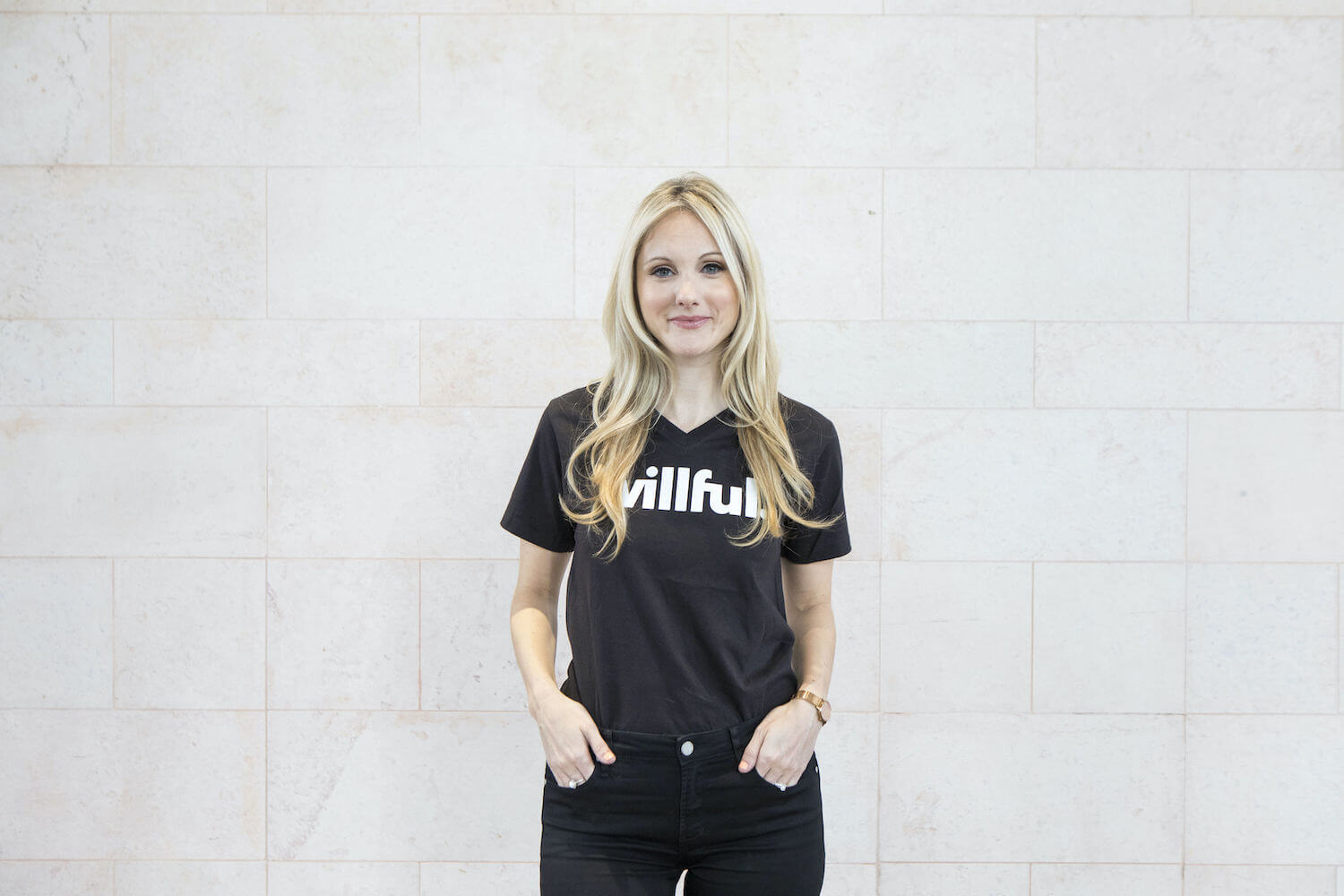The latest candidate in our series of Q&As with influential women in the technology business in Canada is Erin Bury, Co-founder and CEO of Willful, a website that guides you to creating customized legal documents online.
Name: Erin Bury
Job Title: Co-founder & CEO, at online will platform Willful
Years in the Industry: 14 Years
The Quote That Most Inspires You: “Positivity is a choice” – (Something my mom always used to say to me – it inspires my optimism today)
What drew you to a career in the consumer and/or business technology industry?
When I grew up, my mom worked in marketing at Nortel, so she was immersed in the high-tech world. It was common for us to discuss fibre optic marketing strategies at the dinner table. So, I always had an interest in technology, and I aspired to work in marketing like my mom. I went to journalism school and worked at a PR agency on the technology team. Shortly after that, I was recruited as the second employee at a start-up. That really put me on a path to working in the tech start-up space, and I haven’t looked back since.
Have you encountered any roadblocks along the way that were related to your gender?
I’ve been fortunate to always work in female-dominated companies. My journalism class and first PR agency were overwhelmingly made up of women, and then I worked for a female entrepreneur for many years. Since then, I have run my own companies and have always had women in executive roles alongside me. My mentors, colleagues, and executives have always been strong women, not to mention my mom, who was my role model and showed me that the glass ceiling doesn’t have to exist in business.
I haven’t felt that my gender has been a roadblock, but then again haven’t experienced harassment or discrimination (that I know of). You hear so many horror stories of female founders pitching male venture capitalists and having a poor experience, but I haven’t experienced that personally. I also recognize that I come from a place of immense privilege. I am an able-bodied heterosexual middle-class white woman, so I try to recognize that privilege when answering questions like this.
What unique characteristics or perspective do you feel you bring to your organization as a woman?
I’m a firm believer that female-identifying leaders have a superpower, which is empathy. There is a stereotypical portrayal of the “tech bro” CEO: the Mark Zuckerberg-type entrepreneur who is callous, uncaring, ruthless, and who would throw their own best friend under the bus to make a buck. Most of the female founders I know are the antithesis of that: they genuinely care about their teams, and they lead with empathy. This results in teams who care more about the mission, customers who feel valued, and generally a more positive environment. I think it’s a fallacy that you have to pick being nice or being successful. As a female leader, I can be both, and I try to set an example for that every day.
Technology is historically a male-dominated industry, yet the use of tech is fully embraced by women, and many studies even suggest that females are the primary buyers of tech in the home. What do you feel the technology industry needs in order to attract more women, particularly into high-level positions?
I’m a big believer in representation. When I was growing up, I didn’t have any female role models who were entrepreneurs, computer scientists, or technologists. It wasn’t until the 2000s that founders like Sara Blakely from Spanx started gaining attention. If I had had more role models in those areas, perhaps I would have pursued more technical STEM courses, or aspired to be an entrepreneur earlier in my life (versus becoming an entrepreneur in my 20s).
Organizations like Canada Learning Code and Juno College are helping to educate the next generation of computer scientists and developers, and those women are going to rise through the ranks of the top companies in Canada and create so many amazing role models for our children. I’m hopeful that when I have kids, they’ll look up to Shopify engineering leads as the model for their careers and aspire to STEM careers.
If you had to sum up what it is like being a woman in this male-dominated technology industry in just a few words, what would you say?
A unique opportunity to lead differently.
Are there other women in the tech industry who inspire you?
Absolutely! My mentor, Sarah Prevette, inspires me a lot. She was my boss at my first start-up, and she is such a strong, hardworking person. She taught me a lot about entrepreneurship and how to dream big.
I also admire a lot of my peers in the start-up space in Canada. Founders like Effie Anolik from Afterword, Mallory Greene from Eirene, Heather Payne from Juno College, Avery Francis from Bloom, and Fatima Zaidi from Quill. We share knowledge, support each other, and provide much-needed moral support on the hard days.

What are some of the misconceptions/myths about women working in the technology space that you’d like to dispel?
That there aren’t a lot of female tech founders! There’s a vibrant community of tech founders in Canada who are leading the charge on big issues like digital healthcare, fertility, and end-of-life planning. Women aren’t just launching lifestyle businesses; they’re spearheading some of the biggest tech challenges of our time.
What’s one thing you wish was done differently in the industry, and why?
I wish we could change the way companies are funded. Unless you live in a big city like Toronto and have a deep network – or a rich family – it’s very tough to break in with investors. This is likely the single biggest challenge I see with my female founder peers: how to find angel investors and VCs that will invest in them. I wish there was an easier way for female founders to connect with potential investors that removed the requirement to have a deep network of Ivy League-educated men who largely manage the funds at VC firms in Canada.
I would say that there are some amazing women who are changing that in Canada, including Janet Bannister, the Managing Partner at one of our investors, VC firm RealVentures.
Are you optimistic for the future in general and for the industry?
Absolutely, how could I not be (especially now that you know my favourite quote?!) While we still need to increase the representation of women in technical roles, female founders, and female venture capitalists and agnel investors, those numbers are going up daily. For example, a variety of female Shopify executives just launched Backbone Angels, a fund dedicated to funding underrepresented founders. With every year that passes, I’m more optimistic about representation in tech.









